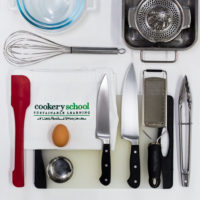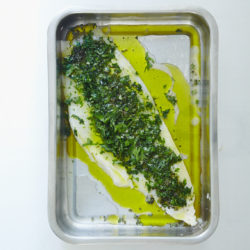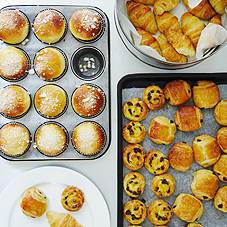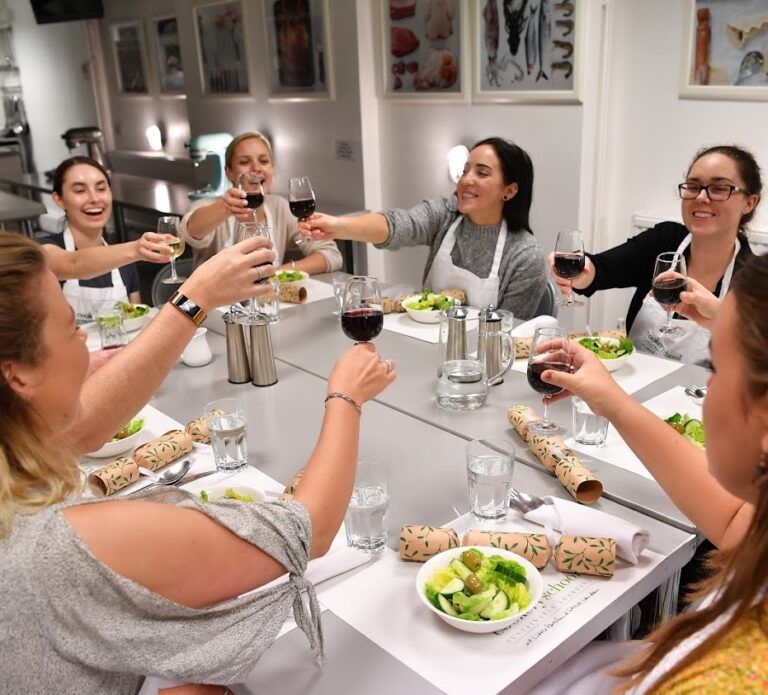Cupboards full of chemicals? Avoiding the Additives
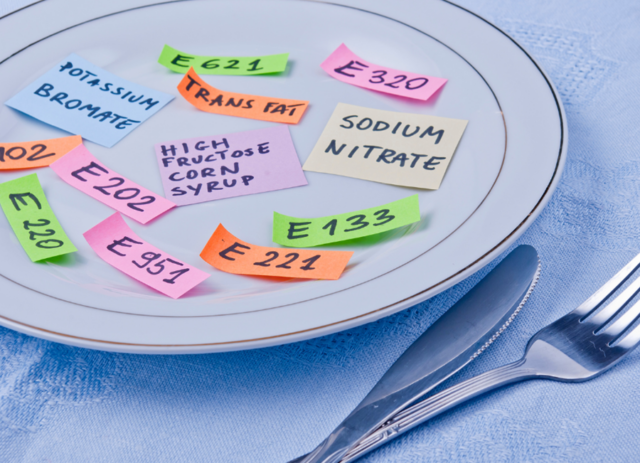
We’ve always taken a stance on additives at Cookery School and with such a focus on UPFs we want to share our thoughts on the chemicals used in small quantities to improve or preserve many of the foods that we eat today. Since our inception a few principles have been sacrosanct : using organic ingredients as much as we possibly could was one and never using any ingredients that contained additives or preservatives was another. The ingredients that we have always cooked with have been as real as possible.
Over the years we’ve encountered a few surprises in terms of additives when sourcing regular products for our cookery classes. Most of our findings are things that you probably would not really consider when food shopping. Below is a list of ingredients that we choose to use that avoid additives.
1. We choose organic meat and poultry because aside from the fact that it is more sustainable, it contains no hormones, antibiotics or steroids.
2. Most vinegars contain preservatives and for some while we have not used sherry vinegar as we cannot find one that is free from any preservatives. Vinegar can be a preservative so why preserve a preservative?
3. Ready made mustards apart from really good ones [we use Delouis France organic Dijon mustard] generally contain a preservative. Why, when mustard itself, has antimicrobial preservative properties must more be added?
4. Frozen prawns have an ice glaze that contains sodium metabisulphite. Apparently the reason for this is to stop prawns having an unsightly look about them [called black spot] if they are not frozen soon after catching. We have heard so many different stories about this essential preservative, the best one being that without it the heads would fall off! Needless to say we found a solution, a prawn with a pure water ice glaze to keep them from having freezer burn. Incidentally, any ice glaze masks the true weight and makes a greater profit for the producer.
5. We only use vanilla extract, pods or vanilla powder as vanilla essence is laboratory made and is not even vanilla but resembles it in flavour. Artificial flavours are a big one to watch.
6. We never use foods with annatto in them – it is a natural food additive that gives an orange colour but it has been known to cause an allergic reaction in some people, notably people who also suffer from a peanut allergy.
7. We never use flavour enhancers like MSG abecause they disagree with many people.
8. We do not use gluten free flours for bread making as they contain either guar gum or xanthan gum and some people cannot tolerate these. Instead we buy gluten free bread if and when we need it. We use gluten free flours for general baking (generally a mix of different flours e.g. rice and tapioca) as the above does not apply and they work really well.
9. Sausages are generally laden with preservatives to prolong shelf life and we never use these at Cookery School. We make our own or buy them from a supplier that does not put sodium nitrite into them. (Founder Ros happens to be allergic to sodium benzoate and has been since childhood and as soon as she eats anything containing it from sausages through to preserved orange juices in cartons, she starts to wheeze badly.)
10. Many oils contain anti foaming agents to keep the oil from foaming when cooking. We avoid these oils and instead we buy a rapeseed oil free from anti foaming agents.
11. Dried fruit often contains sulphur dioxide too so we only use fruit that has nothing in it, i.e. 100% dried fruit as we see no need for preservatives to change the texture or colour. Next time you shop look for preserved apricots which are always orange whilst non preserved ones (organic apricots) are dark brown.
12. We have always used organic root veg and if not available, we do not use them. We do the same with organic fruits including apples, pears, oranges and lemons because the non-organic versions are generally sprayed with pesticides. Many citrus fruits are also coated in wax (which are often petroleum derived and can also contain allergens) to reduce water loss and shrinkage and to improve appearance. We are sometimes unable to buy organic in some products e.g. quinces so we use a small number of these during their short seasons.
13. We do not buy food products in plastic because of the PFAs that leach into food. We immediately decant any ingredients delivered in heavy oil containers, into glass bottles. PFAS (perfluoroalkyl and polyfluoroalkyl substances) are also known as forever chemicals as they do not break down – can take years to do so.
14. We do not buy oil in plastic bottles because of the leaching of the chemical in the plastic into the oil. This happens with bottles of water too. We buy our oil in 20L tins and decant it into bottles. BHA and BHT are the chemicals that leach into oils from their plastic bottles.
We think that this list and our learnings over the years makes a really good argument for buying fresh organic produce where possible and cooking it immediately or freezing it until use. Frozen food is generally fine as it is totally unpreserved and we now use it more frequently than we ever did before. With the dry store ingredients it can take a little time to read labels and source alternatives – if you want any help then give us a shout!
Category
Ingredients
